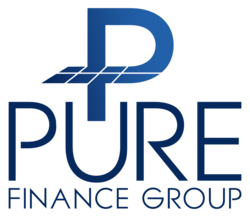
A payment processor and payment gateway work together to help businesses like yours receive funds.
If you’re a business owner looking to accept online payments, you’ve likely come across the terms “payment processor” and “payment gateway.” While the two are often used interchangeably, they actually refer to two different components of the online payment process. In this post, we’ll explore the differences between payment processors and payment gateways and why both are essential for online payments.
What Is a Payment Processor?
A payment processor is a middleman between a merchant’s bank account and a customer’s bank account. When a customer submits a payment, the payment processor communicates the transaction to the credit card network and the customer’s bank. After the transaction is approved, the payment processor informs the merchant’s bank and deposits the funds into the merchant’s account.
Payment processors offer several advantages to business owners. They allow businesses to accept multiple payment methods, including credit cards and online payments, and can help speed up the transfer of funds into the merchant’s account. Most businesses choose to partner with a payment processor to accept credit card payments, as not all transactions require an intermediary.
What Is a Payment Gateway?
A payment gateway is the virtual terminal or point of sale (POS) for online payments. It collects and authenticates digital payment information and transmits it securely to the vendor’s payment processing partner. Think of a payment gateway as the online equivalent of a physical credit card terminal.
Payment gateways offer several advantages to business owners as well. They are an efficient method of accepting credit card payments, allowing purchases to be completed in-store and online, and enabling card-not-present transactions. Payment gateways also offer a range of payment methods and accept multiple credit card types, which can increase customer satisfaction and reduce cart abandonment rates.
Payment Processors vs. Payments Gateways?: The Necessity of Both
In short, payment processors and payment gateways are both critically necessary for online payments. Gateways collect and authenticate payment information, while processors facilitate communication between parties and transfer funds into a given merchant’s bank account. Payment processors and payment gateways work together to ensure efficient and secure online payment processing.
Without a payment gateway, a merchant wouldn’t be able to securely collect their customers’ payment information. And without a payment processor, the payment information wouldn’t be communicated to the credit card network or the merchant’s bank account. Both components are essential to complete the online payment process.
Closing Thoughts
As we’ve seen, while payment processors and payment gateways are often referred to and even conceptualized synonymously, they in fact refer to separate, “cooperative” components of the online payment process. Payment processors facilitate communication between parties and transfer funds into the merchant’s bank account, while payment gateways collect and authenticate payment information. Both components are necessary for efficient and secure online payment processing. As a business owner, it’s imperative to grasp the “payment processor vs. payment gateway” basics to ensure the best choice—i.e., the right solution—for your business.
Pure Finance Group Is Here to Help!
Thank you for your interest in Pure Finance Group. We’re so excited you’re here. For more information on how our lending services can help you with your home financing needs, give us a call (410-401-4957) or fill out the form on our contact page today. If you have a question about any lending services we provide including home improvement loans, we are here to help answer all your questions. Just give us a call (410-401-4957) or contact us today. To keep up-to-date with the latest financing tips and solutions, keep in touch with us on Facebook and LinkedIn!
